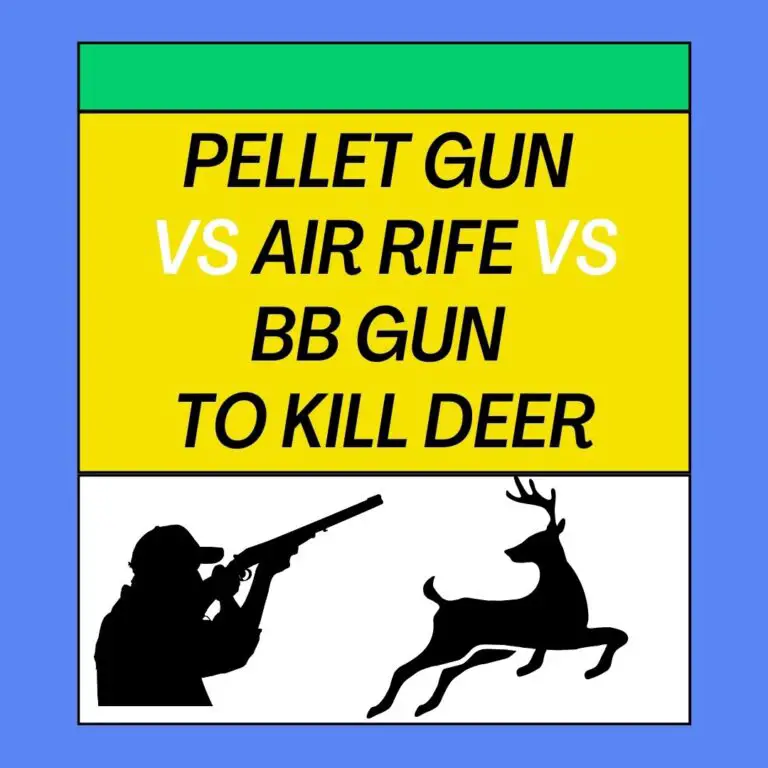
As of my last knowledge update in September 2021, the regulations regarding the use of .223 caliber rifles for deer hunting vary from state to state in the United States. Some states allow the use of .223 rifles for deer hunting under specific conditions, while others do not permit it. It’s important to note that hunting regulations can change over time, so it’s crucial to consult the most up-to-date regulations for the specific state where you plan to hunt.
Here are a few examples of states and their regulations regarding .223 caliber rifles for deer hunting:
- Texas: In Texas, .223 caliber rifles are legal for deer hunting on private land, but they must use soft-point or hollow-point ammunition. On public lands, certain caliber restrictions may apply, so it’s essential to check with the Texas Parks and Wildlife Department for specific regulations.
- Michigan: Michigan allows the use of .22 caliber rifles, including .223, for deer hunting during the firearm season.
- Ohio: Ohio permits the use of .223 caliber rifles for deer hunting during the deer-gun season.
- Pennsylvania: Pennsylvania allows hunters to use .223 caliber rifles for deer hunting in some regions of the state, but there are caliber restrictions in certain areas, so it’s important to verify the regulations for the specific hunting zone.
- Wisconsin: Wisconsin permits the use of .223 caliber rifles for deer hunting as long as the ammunition used meets specific energy requirements.
Please keep in mind that hunting regulations can change, and they often vary by season and hunting zone within a state. Additionally, state wildlife agencies may update regulations based on research and conservation efforts, so it’s crucial to check with the relevant state’s wildlife agency or consult their official hunting regulations for the most current and accurate information regarding the use of .223 caliber rifles for deer hunting in that state.
Which States Prohibit Deer Hunting With .223 Rifles?
As of my last knowledge update in September 2021, several states in the United States prohibit deer hunting with .223 rifles. Please note that hunting regulations can change over time, and it’s essential to consult the most up-to-date regulations for the specific state where you plan to hunt. Below are a few examples of states that typically do not permit the use of .223 rifles for deer hunting:
- Indiana: Indiana generally prohibits the use of .223 caliber rifles for deer hunting. The state’s hunting regulations specify minimum caliber requirements for deer hunting, and .223 rifles do not meet those requirements.
- Illinois: Illinois typically does not allow the use of .223 rifles for deer hunting. The state has caliber restrictions for deer hunting, and .223 rifles are not within the allowed calibers.
- Iowa: Iowa’s deer hunting regulations typically do not permit the use of .223 rifles for hunting deer. The state has specific caliber requirements for deer hunting, and .223 rifles may not meet those requirements.
- Minnesota: Minnesota generally does not allow deer hunting with .223 rifles. The state’s regulations specify minimum caliber requirements for big game hunting, and .223 rifles may not meet those requirements.
- New York: New York typically does not permit the use of .223 caliber rifles for deer hunting. The state has caliber restrictions for big game hunting, and .223 rifles may not comply with those regulations.
Please keep in mind that state hunting regulations can change, and there may be variations in regulations within a state, depending on the hunting zone and season. It’s crucial to check with the relevant state’s wildlife agency or consult their official hunting regulations for the most current and accurate information regarding the use of .223 caliber rifles for deer hunting in that state.
Is A 223, 243 Or 308 Better For Deer Hunting?
When choosing between .223, .243, and .308 caliber rifles for deer hunting, it’s essential to consider factors like the deer species, hunting conditions, and personal preferences. Each caliber has its advantages and limitations, and what’s “better” can vary depending on your specific needs. Here’s a comparison to help you decide:
- .223 Caliber:
- Advantages: .223 rifles are known for their low recoil, which makes them easier to shoot accurately, particularly for less experienced hunters or those sensitive to recoil. They are also popular for varmint hunting.
- Limitations: .223 is considered on the lighter side for deer hunting. While it can be effective for taking down smaller deer species or when shot placement is ideal, it may not provide enough stopping power for larger or tougher deer. Bullet selection is crucial.
- .243 Caliber:
- Advantages: The .243 Winchester is a versatile caliber suitable for deer hunting. It offers a good balance between manageable recoil and sufficient stopping power. It is known for its flat trajectory and accuracy.
- Limitations: While effective for most deer hunting scenarios, the .243 may struggle with larger or more robust deer species, particularly at longer distances. Bullet choice and shot placement remain important.
- .308 Caliber:
- Advantages: The .308 Winchester is a popular and respected choice for deer hunting. It offers excellent stopping power, making it effective for larger deer species and various hunting conditions. It has a wide range of available ammunition and is known for its accuracy.
- Limitations: The .308 has more recoil compared to .223 and .243, which some hunters may find less comfortable. However, many hunters consider the trade-off in recoil worth the increased stopping power.
Which is Better?
- For smaller deer species and shorter-range hunting, .223 and .243 can be suitable options if you are confident in your shot placement and use appropriate ammunition.
- For larger deer species or when hunting in varied conditions, many hunters prefer the .308 for its superior stopping power.
Which Ar-15 Can You Hunt With?
The AR-15 platform is a popular choice for hunting in various states in the United States, but the specific AR-15 models and calibers allowed for hunting can vary by state and hunting regulations. Here are some common AR-15 models and calibers that are often used for hunting:
- AR-15 in .223/5.56: The .223 Remington/5.56 NATO caliber AR-15 is a versatile choice for hunting smaller game such as varmints, coyotes, and hogs. It is also legal for deer hunting in some states, but the suitability depends on local regulations and shot placement.
- AR-15 in .300 AAC Blackout: The .300 AAC Blackout caliber AR-15 is increasingly popular for hunting because it offers more energy and stopping power than the .223/5.56, making it suitable for deer and hog hunting. It is often used in states that have caliber restrictions for hunting.
- AR-10 in Various Calibers: The AR-10 is a larger and more powerful version of the AR-15, designed for larger game hunting. It is available in various calibers, including .308 Winchester/7.62 NATO, 6.5 Creedmoor, and others, making it suitable for deer, elk, and other big game hunting.
- State-Specific Regulations: It’s crucial to check the hunting regulations in your specific state and hunting zone. Some states may have caliber restrictions, magazine capacity limits, or other regulations that dictate which AR-15 models and calibers are legal for hunting.
- Shot Placement and Ethics: Regardless of the AR-15 model and caliber you choose, ethical hunting practices and precise shot placement are essential for a humane and effective harvest. Always practice responsible and ethical hunting to minimize suffering and ensure quick, clean kills.
- Ammunition Selection: Choose appropriate hunting ammunition designed for your intended game species and caliber. Some states may also have restrictions on the type of ammunition you can use for hunting.
Before using an AR-15 for hunting, it’s essential to thoroughly research and understand the hunting regulations in your area. Additionally, consider factors such as game species, shot distances, and the terrain in which you’ll be hunting when selecting the appropriate AR-15 model and caliber. Always prioritize safety, ethical hunting practices, and compliance with local laws and regulations.
Best 223 Ammo For Deer Hunting
When selecting .223 ammunition for deer hunting, it’s crucial to prioritize ethical hunting practices and use appropriate ammunition that ensures a quick and humane kill. While the .223 caliber is on the lighter side for deer hunting, it can be effective when using the right ammunition and practicing precise shot placement. Here are some considerations for choosing the best .223 ammo for deer hunting:
- Bullet Type: The choice of bullet type is critical for .223 deer hunting ammunition. Use expanding or soft-point bullets designed for hunting. These bullets are designed to mushroom upon impact, causing maximum damage and delivering quick, humane kills.
- Bullet Weight: Opt for heavier bullet weights within the .223 caliber range. Bullets in the 60- to 77-grain range are often recommended for deer hunting. Heavier bullets can provide better penetration and energy transfer.
- Brand and Quality: Choose reputable ammunition brands known for producing high-quality hunting rounds. Well-known manufacturers often offer consistent performance and reliable expansion.
- Accuracy: Ensure that the ammunition you select is accurate in your specific rifle. Accuracy is essential for making precise shots on deer.
- Local Regulations: Check your state’s hunting regulations regarding caliber and ammunition requirements for deer hunting. Some states may have specific restrictions on the use of .223 caliber rifles for deer hunting.
- Shot Placement: Regardless of ammunition choice, prioritize accurate shot placement. Aim for vital organs such as the heart and lungs to ensure a quick and ethical kill.
- Range Considerations: Keep in mind that .223 ammunition may have limited effective range for deer hunting. It’s important to practice at the ranges you plan to hunt and be aware of your rifle’s ballistics.
Some popular .223 ammunition options for deer hunting include:
- Federal Fusion .223 Remington 62 Grain Soft Point
- Hornady Custom .223 Remington 60 Grain Soft Point
- Winchester Super-X .223 Remington 64 Grain Power-Point
Always verify the ammunition’s performance in your specific rifle through testing and practice before heading out for a hunt. Additionally, consult local hunting experts and experienced hunters in your area for recommendations on .223 ammunition that has proven effective for deer hunting under local conditions.
Summary
Ultimately, the “better” caliber depends on your skill level, hunting conditions, and the specific deer species you plan to hunt. Regardless of your choice, always practice ethical hunting, prioritize shot placement, and use high-quality ammunition to ensure a humane and effective harvest. Additionally, be sure to check your state’s hunting regulations to ensure compliance with caliber requirements.






